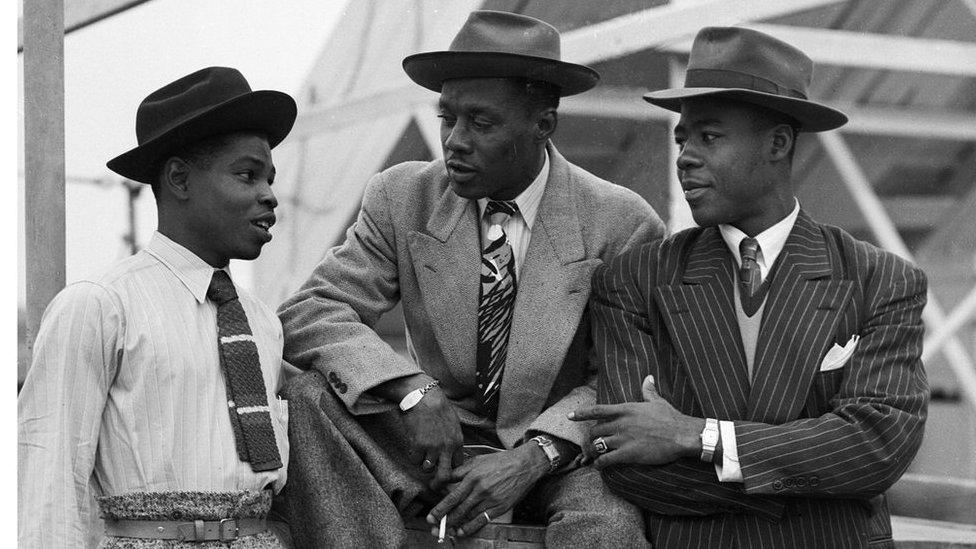Windrush relatives recreate photos taken in Leeds studio
- Published
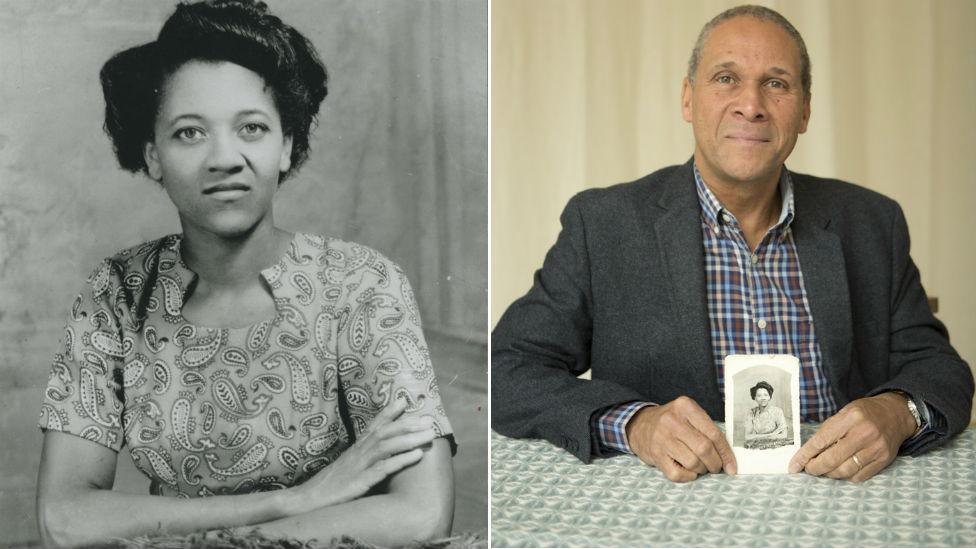
The late Delores "Vi" Francis, who came to Leeds from Jamaica in the 1950s and became the city's first black female bus conductor, alongside her son Patrick Francis
Families of deceased Windrush-era Caribbeans have had their portraits taken at the same studio their relatives once posed in as part of a photography project.
The Eulogy exhibition will celebrate the lives of Jamaicans who emigrated to Leeds.
The project will run at Leeds Central Library from 2 August for a month.
The event, organised by Jamaica Society Leeds, is supported by an £82,000 National Lottery Heritage Fund grant.
Many of the formal photos of the first generation Jamaicans who came to Leeds during the wave of Caribbean immigration were taken in the same studio, Gerald Donne Photography Studio on Chapeltown Road.
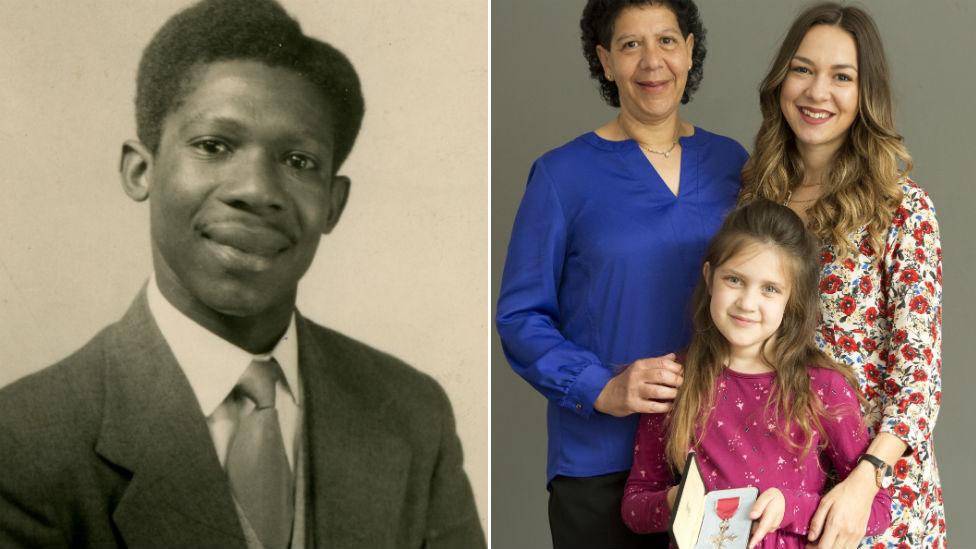
The late Errol James MBE, who came to England from Jamaica as a teenager in 1944 to volunteer for the RAF, alongside his daughter Lynne James, granddaughter Grace Holliday and great-granddaughter Esme Holliday
Susan Pitter, from the project, said recent arrivals often sent back photos to their families "to say all is well, we've arrived and life is good".
Windrush: Who exactly was on board?
In Pictures: The Windrush generation
Alongside the photos, the exhibition will feature tributes gathered from funeral programmes.
The printed booklets, often featuring elaborate designs, are commonly prepared in Jamaican and other Caribbean communities.
Organisers said the photos, together with the eulogy information, will help to tell "a rich life story" of the individual.
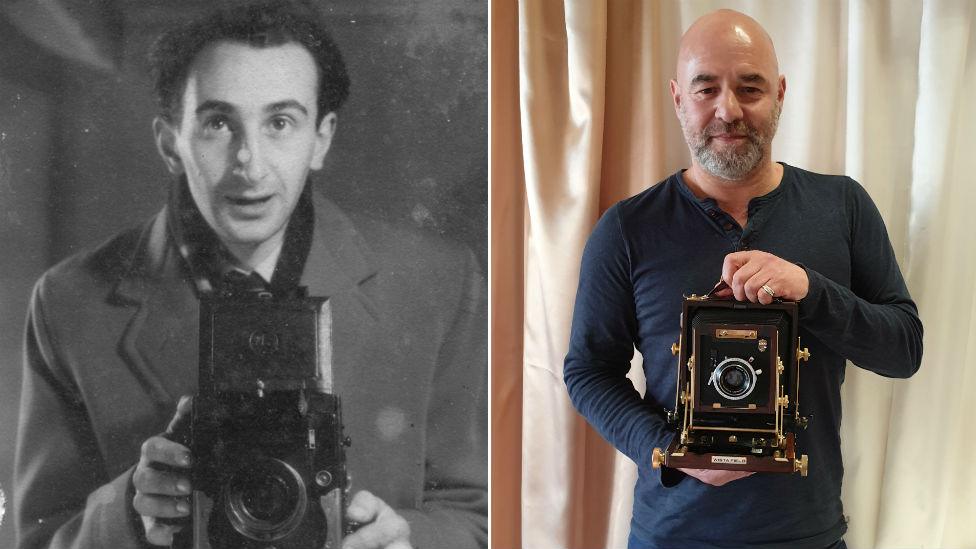
Gerald Donne photographed many of Leeds' first Jamaicans, with Paul Floyd Blake using the same studio to take portraits of their relatives
"It celebrates the lives, journeys and the heritage of first generation Jamaicans who came to the city from the 1940s to the 1960s and are no longer with us," said Ms Pitter.
"Thankfully there are some of that first generation who are still here, but this is about connecting with those who have passed away and making sure their stories are told."
Photographer Paul Floyd-Blake, who is producing 20 portraits as part of the project, said: "The old photographs capture the memories and magic of the past.
"Photographing in the same space adds another layer of magic really."

Follow BBC Yorkshire on Facebook, external, Twitter, external and Instagram, external. Send your story ideas to yorkslincs.news@bbc.co.uk, external
- Published4 October 2018
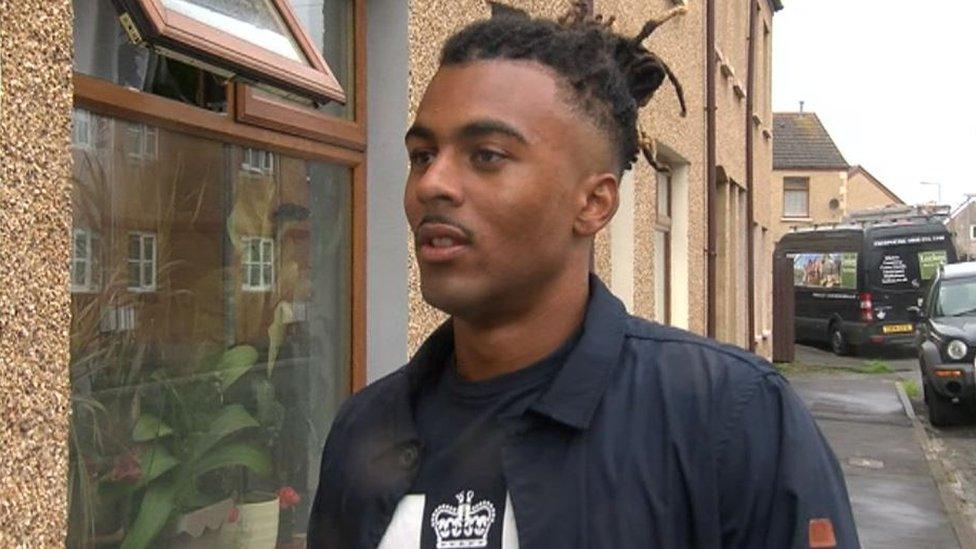
- Published16 April 2018
